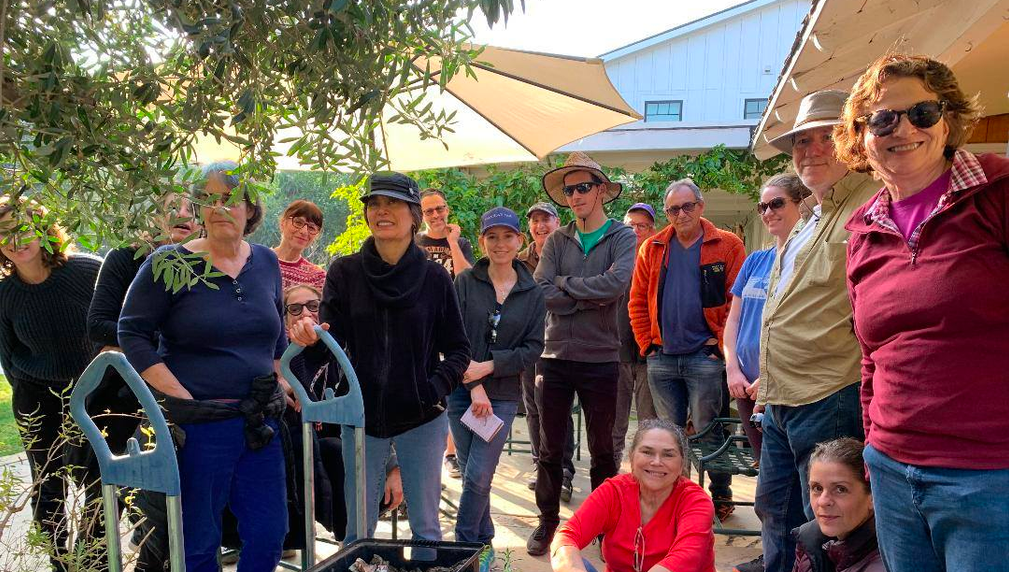Homes for People in Houses of Faith
We’re creating a model for faith communities (churches, synagogues, mosques) to build Permanent Supportive and Affordable Housing as an integral part of our campuses and as part of our mission to love our neighbors. The grant funding will help us ensure that homes for people who are unhoused are built in high-opportunity, resource and transit-rich neighborhoods where land costs are higher and affordable housing is scarce.

What is the primary issue area that your application will impact?
Housing and Homelessness
In which areas of Los Angeles will you be directly working?
West LA
County of Los Angeles
City of Los Angeles
In what stage of innovation is this project, program, or initiative?
Expand existing project, program, or initiative
What is your understanding of the issue that you are seeking to address?
Poverty and homelessness are at epidemic proportions in LA. Land to develop affordable and permanent supportive housing is hard to find and expensive. Layering and scarcity of funding create a slow and expensive process to develop affordable housing. To succeed in a competitive public funding environment, affordable housing projects must keep the per-unit cost within a comparable range to projects across the city. It is nearly impossible to build permanent low-income housing in areas that are richest in resources that would make the transition to permanent homes most successful for low-income people. A 2019 LA City Planning Department report revealed that of the affordable units permitted in the last 10 years, 14% were produced in the City’s High Resource areas, while 62% were in the Low Resource, High Segregation & Poverty areas. In City Council District 5 (Westside), where IKAR is, 472 units of affordable housing were built while in Council District 1, 2423 units were constructed.
Describe the project, program, or initiative this grant will support to address the issue.
IKAR, a Jewish spiritual community, is in the process of converting our South La Cienega property into a campus that would contain a new sacred assembly space, administrative offices, multi-purpose rooms, a preschool, and a below-grade parking garage shared between the different uses. IKAR also plans to include 55 units of affordable housing for homeless seniors as part of its campus. For the affordable housing portion of the campus, IKAR has initiated a joint venture with the non-profit Community Corporation of Santa Monica (“Community Corp”) to oversee the financing, construction, and administration of the affordable housing development. IKAR and CCSM’s collaborative approach to this project is an innovative model for mission-driven, faith-based communities, many of whom own valuable land in areas that would be ideal for more and denser affordable housing, to contribute in a tangible way to easing the burden of the housing crisis in Los Angeles and to help distribute that housing equitably across the city. This has the potential to help address both the housing crisis and the history of racial housing exclusion simultaneously. This funding will help us keep the cost of IKAR’s westside land and the per-unit affordable housing development cost in the range of other projects seeking funding from government sources.
Describe how Los Angeles County will be different if your work is successful.
With this grant and funding from other foundation sources, we hope to help Community Corp. secure the funding they need to move forward with the 55-unit affordable housing development project on IKAR’s La Cienega site. We anticipate filing for entitlements for the entire project with the City in fall 2022, and breaking ground on construction in January 2024, with a two-year construction estimate. We hope to see residents move into the units in 2026. The LA2050 grant could be pivotal in helping us secure funding from other sources to make this project viable and help us to unlock millions of dollars from state and federal funding sources for the overall project.
What evidence do you have that this project, program, or initiative is or will be successful, and how will you define and measure success?
This project will be successful when we secure the funding we need to build the housing development, and later when the development is built. Furthermore, we’ll use the knowledge gained in this project to inspire other faith institutions and non-profit housing developers to consider similar partnerships to build housing in high-opportunity neighborhoods. We’ll use these insights to advocate with elected officials and policy-makers to remove barriers to building housing in the city, county, and state.
Approximately how many people will be impacted by this project, program, or initiative?
Direct Impact: 70
Indirect Impact: 3,500